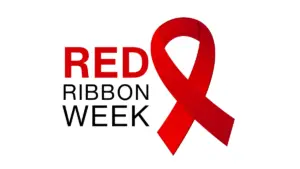What Are Dual Diagnosis Treatment Centers?
Dual diagnosis treatment centers provide care for individuals living with both a substance use disorder and a mental health condition. This type of treatment addresses the complex relationship between the two conditions, offering patients a more complete path to recovery.

Defining Dual Diagnosis
Dual diagnosis refers to the coexistence of a mental health disorder—such as depression, anxiety, or PTSD—alongside substance misuse. According to the National Institutes of Health, nearly half of people with addiction also experience a mental health disorder, making integrated care essential.
Why Integrated Care Matters
Treating only the addiction or only the mental health issue often leaves the other condition unresolved, increasing the risk of relapse. Dual diagnosis treatment centers recognize that successful recovery must address both conditions at the same time.
Common Mental Health and Addiction Pairings
Depression and Substance Use
Depression and addiction frequently occur together. Individuals may turn to drugs or alcohol to numb emotional pain, which can worsen depressive symptoms over time. Integrated treatment breaks this cycle by addressing both the depression and the substance use.
Anxiety, PTSD, and Addiction
Anxiety disorders and PTSD are also commonly linked with addiction. Many individuals attempt to self-medicate, which can intensify anxiety and trauma symptoms. Dual diagnosis programs provide healthy coping strategies and professional support.
Challenges Without Dual Diagnosis Treatment
Risks of Treating Only One Condition
If a treatment plan focuses only on substance use, untreated mental health conditions often trigger relapse. Likewise, treating mental illness without addressing addiction leaves individuals vulnerable to ongoing substance misuse.
Why Relapse Rates Increase
Without integrated care, relapse becomes more likely. When the root causes of both conditions are left untreated, individuals may find themselves cycling through recovery and relapse repeatedly.
Benefits of Dual Diagnosis Treatment Centers
Coordinated Mental Health and Addiction Care
Research confirms that dual diagnosis treatment centers offer better long-term outcomes. NIH studies highlight how coordinated care allows providers to treat overlapping symptoms and provide holistic support for the entire individual.
Personalized and Holistic Approaches
Dual diagnosis programs often combine therapy, medical care, medication management, and holistic practices like mindfulness or exercise. This approach creates personalized treatment plans that meet the unique needs of each client.
What to Expect in a Dual Diagnosis Program
Therapy and Counseling Options
Cognitive-behavioral therapy (CBT), dialectical behavior therapy (DBT), and trauma-focused care are commonly used in dual diagnosis centers. These therapies help individuals change thought patterns, develop coping skills, and address past trauma.
Medication and Supportive Care
Some clients benefit from medications that stabilize mood, reduce anxiety, or support recovery. When paired with therapy, medication can help manage symptoms while providing balance during treatment.
Peer and Family Involvement
Peer groups and family participation strengthen recovery by providing accountability and encouragement. Education for family members also helps them better understand co-occurring disorders and how to offer healthy support.
How Oceanrock Health and South Coast Counseling Can Help
Integrated Dual Diagnosis Programs
At Oceanrock Health, clients receive evidence-based care for both addiction and mental health. Programs are designed to create individualized paths toward long-term healing.
Addressing Co-Occurring Disorders
South Coast Counseling specializes in supporting individuals with complex co-occurring conditions. Their holistic approach combines therapy, group support, and medical care to address every layer of recovery.
Taking the First Step
Reaching out for support is the most important step toward recovery. Both Oceanrock Health and South Coast Counseling provide safe, compassionate environments where individuals and families can begin their journey.
Why Dual Diagnosis Care Matters
Dual diagnosis treatment centers offer the comprehensive care needed to treat both addiction and mental health conditions. By addressing the root causes and creating personalized treatment plans, these programs provide the foundation for lasting recovery. Oceanrock Health and South Coast Counseling stand ready to help individuals and families find the support they need.








